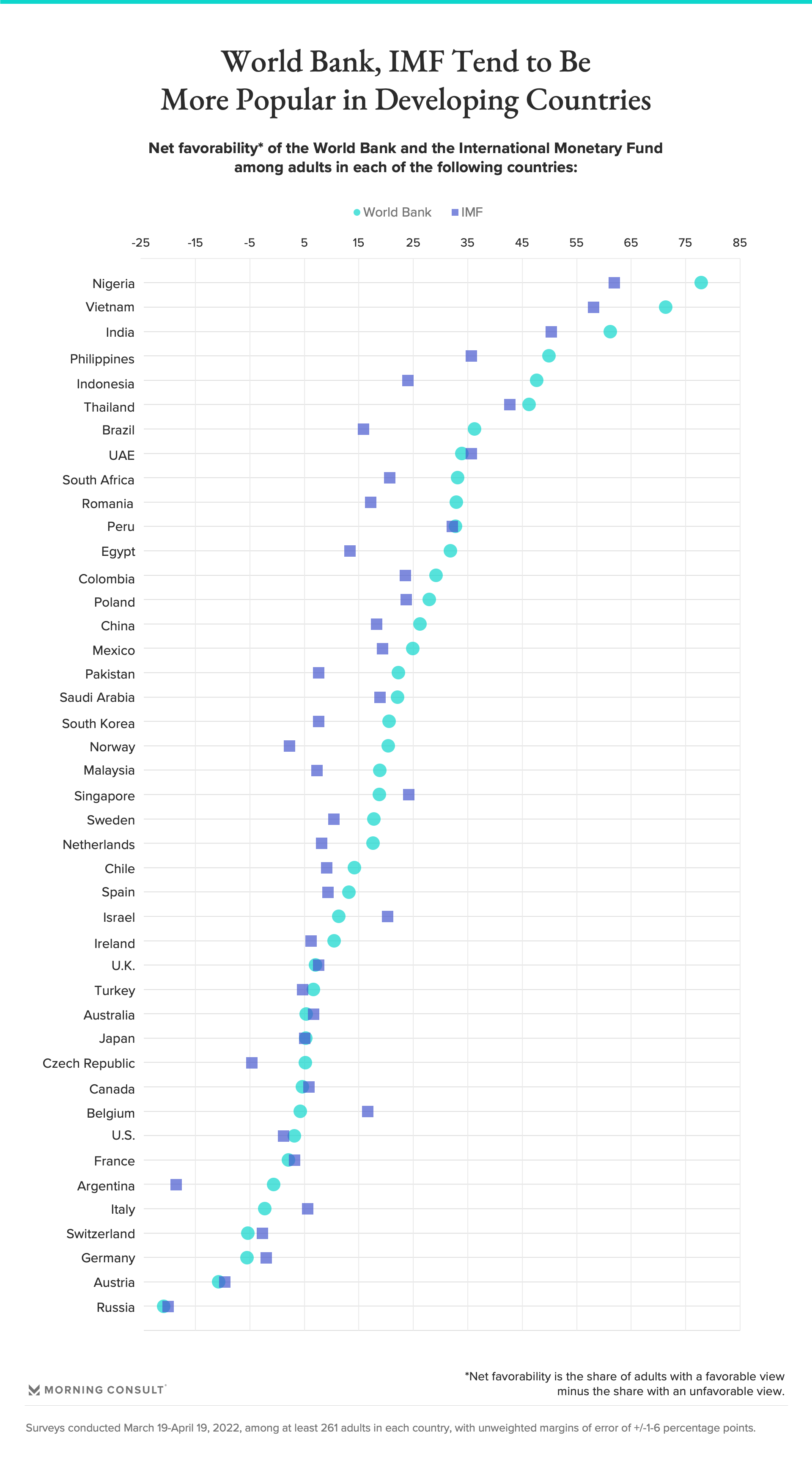World Bank and IMF Find Support in Global South, but Indifference Elsewhere
The World Bank and International Monetary Fund are meeting this week in Washington amid a global economic landscape roiled by war, disease and growing debt. But while Morning Consult survey data shows the developed world might be indifferent about the role they play, both institutions enjoy far greater support across many of the developing countries most in need of their help.

What adults around the world think about the World Bank, IMF
- People in most wealthy countries are about equally indifferent to both the World Bank and IMF, but the World Bank is viewed somewhat more favorably than the IMF in countries with developing economies, which are most likely to have worked directly with both.
- Nigerians are the most enthusiastic about either institution, with 83% expressing favorable views of the World Bank and 69% having favorable views of the IMF.
- The World Bank is also popular in Vietnam and India, where more than 7 in 10 adults have a favorable view, and it’s popular with majorities in Thailand (55%), the Philippines (58%) and Indonesia (57%). The IMF’s image in those countries is slightly worse by comparison.
- Russians have the worst views of both institutions. That might not come as a surprise: The World Bank, for one, hasn’t extended loans to Russia since 2014, when it annexed the Crimea region of Ukraine, and recently stopped all programs in the country entirely.
- Argentina, whose economy a century ago rivaled those of France and Germany but has been controversially “rescued” by the IMF 21 times since it joined in 1956, has the second worst views of the institution.
The big picture
With both the World Bank and IMF estimating gloomy global growth of under 4% this year at their meeting, the two institutions will be central to shoring up economies that feed the mouths of hundreds of millions of people. The world’s most fragile economies owe some $35 billion in debt payments in 2022, and the headwinds only continue to strengthen.
The IMF has already been asked to intervene urgently in Sri Lanka, where protests about economic conditions threaten to topple the government, and in Egypt, one of the countries most heavily dependent on Ukrainian grain exports prior to Russia’s invasion. But aid groups have also called on it to ease its demands for governments in developing countries to adopt austerity measures as they seek to recover from pandemic. The World Bank, meanwhile, estimates food prices could jump 37%, putting millions more people at risk of starvation.
What else you need to know
- In wealthier countries, indifference and unfamiliarity dominate, though the World Bank is somewhat better known. Majorities have never heard of or have no opinion on the IMF in the United States, Canada, the United Kingdom, Japan, Australia, China, Norway and Sweden, joined by large numbers in Brazil, South Africa and much of Europe.
- One of the major exceptions to that trend are societies that were themselves in need of those global financial institutions’ help within living memory, such as Singapore and South Korea.
The surveys were conducted March 19-April 19, 2022, among a representative sample of at least 261 adults in each country, with margins of error ranging from plus or minus 1 to 6 percentage points.
Matthew Kendrick previously worked at Morning Consult as a data reporter covering geopolitics and foreign affairs.